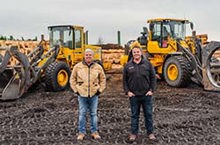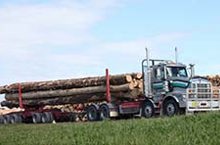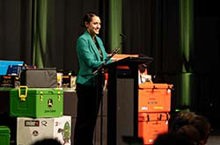
The felling of the Valley Road pine forest earlier this year will result in Whakatāne District Council’s greenhouse gas emissions almost doubling in its audit for the 2024-2025 financial year.
In the final environment, energy and resilience committee meeting for the current council term, earlier this month, staff updated the committee on its progress toward meeting the targets of its community climate change strategy, Our Climate Pathway.
This was the second six-monthly update and marked progress one year on from the council’s adoption of the strategy.
An emissions audit for the year ended June 30 is underway and expected to be presented to the council later in the year.
While final figures are still being confirmed, emissions are expected to be roughly double those of the previous year, mostly due to the pine tree felling, which resulted in approximately 2917 tonnes of carbon dioxide having to be accounted for.
The logging operation, earlier this year, was to prevent the risk of trees falling and erosion. The previous year’s emissions were 3800 tonnes and, apart from the one-off increase from the felling, they are on track to be consistent in the upcoming audit.
The Pathway has led to improvements to council facilities to reduce power consumption such as solar panels and more efficient water pumps.
Work is continuing to reduce the council’s fleet of vehicles and transition to electric or lower fossil fuel consumption vehicles.
In addition, a climate change and resilience team has been established, a new greenhouse gas emissions accounting and auditing platform has been adopted, school waste education and programmes have been delivered at 38 schools and the council has worked with community group Zero Waste Whakatāne to promote waste minimisation.
A $160,000 Climate Change Risk Assessment created by consultants Tonkin & Taylor was also adopted at the meeting.
The council’s Climate Change and Resilience Manager, Lou Hunt, says a science-based, community-informed approach is key to making good decisions: “It's about changing what we do, how we build, and how we plan so we can stay safe, protect nature and keep our communities strong.
“Rather than reacting after events happen, we’re putting tools in place to plan ahead, protecting our people and places, reducing future costs, and supporting long-term wellbeing.”









